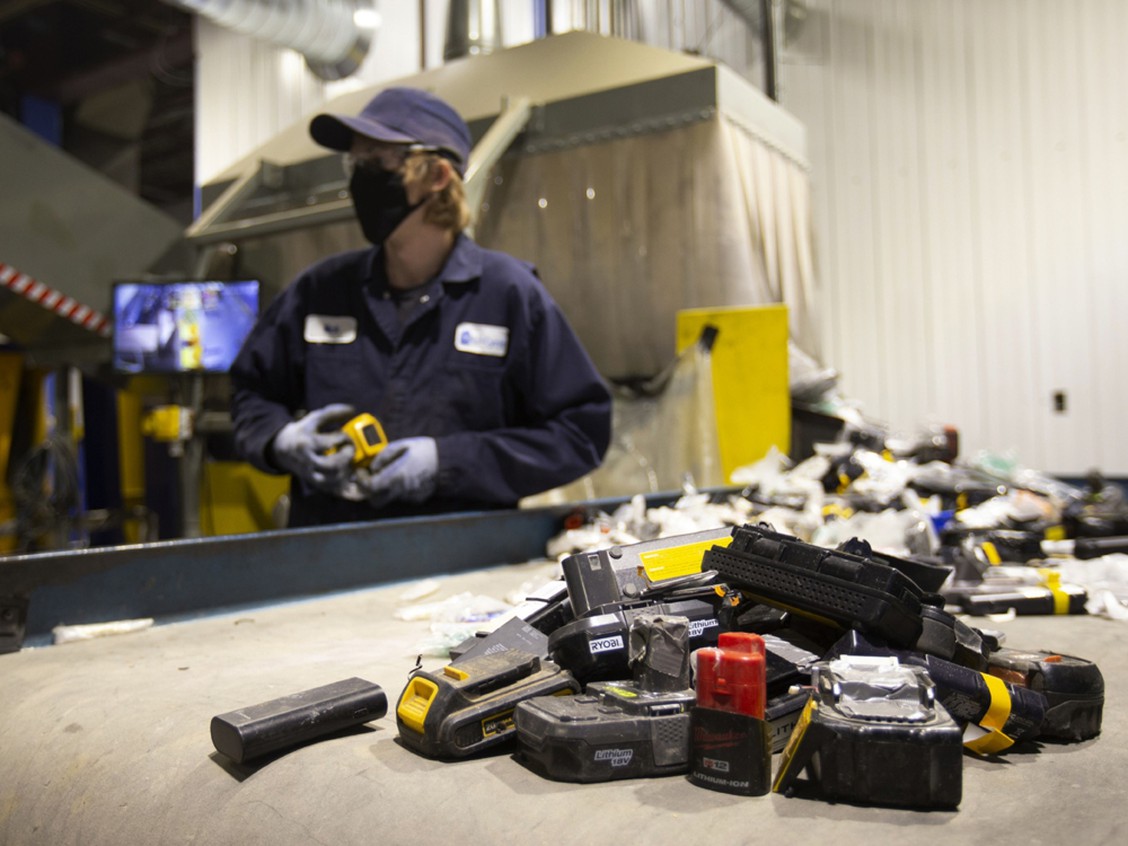



October 6, 2021



Koch Industries best known for supporting politicians, groups that oppose government regulations, including climate change legislation
October 6, 2021
Original video published in Financial Post
One of Canada’s greenest companies has struck a partnership with a subsidiary of Koch Industries, the U.S. industrial conglomerate run by the billionaire libertarian Charles Koch.
Mississauga, Ont.-based Li-Cycle Holdings Corp., which collects lithium-ion battery scrap and converts it into feedstock for new electric vehicle batteries, announced on Sept. 29 that Koch Strategic Platforms had purchased a US$100 million five-year convertible note.
Wichita, Kansas-based Koch Industries is privately held and operates across a vast array of industries, employing more than 130,000 people in oil and gas refining, chemicals, textiles, beef production and more. Its namesake chief executive and chairman Charles is best known for supporting politicians and groups that oppose government regulations, including climate change legislation, such as former U.S. President Barack Obama’s failed effort to pass a cap-and-trade emissions plan.
Ajay Kochhar, chief executive of Li-Cycle, described the investment as a partnership, saying Koch Industries would lend its expertise in industrial operations to help his company “move quicker.” He added that Koch Industries is “aggressively” investing in the energy transition, and that he is convinced it wants “to embrace what’s happening from an energy standpoint.”
“There’s clean capitalism, let me put it that way,” said Kochhar. “There’s a lot of financial return associated with the transition to a zero-carbon economy.”
He added, “People approach it with different lenses. But at the end of the day, this is where the world is going, right?”
Koch Strategic Platforms was created last year by Koch Industries with a target to invest about US$3 billion in 2021 across four areas by the end of 2021. So far, energy transformation, one of the areas, has accounted for about 30 per cent of investments, according to its managing director Jeremy Bezdek.
Battery recycling, and Li-Cycle, came to his attention because it looks competitive, Bezdek told the Financial Post.
But he said that even though the growth of the electric vehicle industry is “absolutely” driven by government mandates requiring automakers to produce more zero-emission vehicles, Koch Strategic Platforms is looking for companies that can “compete on a free market basis.”
“We’ll continue to take the same stance we always have about the free market,” Bezdek said, adding, “Even in tailwind industries, like (taking) the battery value chain as an example, where they can compete without mandates and subsidies, we’re going to look for opportunities to participate.”
The $100-million note that Koch Strategic Platforms purchased matures in September 2026 and Li-Cycle can pay it back in cash or with common shares valued at $13.43, a 25 per cent premium to the 7-day volume weighted average trading price prior to the deal. Interest accrues semi-annually at between six and eight per cent.
If the note is repaid with Li-Cycle equity, Koch Strategic Platforms would own just under five per cent of the company, according to Kochhar. For now, Koch has entered a standstill agreement.
Li-Cycle’s shares on the New York Stock Exchange traded at US$10.95 as of Tuesday morning, up 35 per cent in the past month.
It had raised US$527 million through a merger announced in February with U.S.-based Peridot Acquisition Corp., a blank-cheque acquisition company.
Since then, it has been focused on building out its “spoke and hub” model across North America, with a central recycling facility located in Rochester, New York, and spokes in Kingston, Ont. and Gilbert, Arizona.
In July, it announced a deal with Univar Solutions, which supplies chemicals to automotive manufacturing plants, and last month announced it is building a fourth “spoke” facility in Alabama that can service the U.S. south.
Kochhar said the additional “incremental funds” from Koch Strategic Platforms would be used to construct the fourth facility, and for expansions in markets outside North America that are still in the planning stage.
He and Tim Johnston, executive chairman of Li-Cycle, co-founded the company in 2016 after concluding that lithium supply and demand would fall out of step while working together at Hatch Ltd., the engineering consultancy giant.

They decided there was a niche for a company that could cleanly and efficiently extract cobalt, nickel, lithium and other materials from end-of-life and defective battery metal.
In the past six months, the company has grown increasingly bullish about its business prospects: A company presentation said that between April and September, its forecast for the total addressable market, or its best guess as to how much recyclable material will be available by 2025, jumped 65 per cent for the North America market. Forecasts for the European and Chinese markets also each jumped by 50 per cent, it said.
Kochhar said demand for lithium is materializing faster than expected. Canada and the U.S. have both passed mandates requiring automakers to produce greater numbers of electric vehicles during the next decade.
“That has a byproduct effect of more scrap available for recycling near term, and of course ultimately in end-of-life batteries,” he said.
Meanwhile, Li Cycle is rapidly expanding. At “spoke” facilities, it is already capable of producing roughly 10,000 tonnes of lithium-ion battery equivalent per year, with an additional 15,000 to 20,000 tonnes of capacity announced or in progress. Its hub in Rochester, New York, is on track to accept 60,000 tonnes per year of lithium-ion battery equivalent from its spokes.
As it transitions from construction to operations, Kochhar said Koch Industries appointed a manager to help Li-Cycle access its expertise. The conglomerate can help hire and train workers, and has facilities in Poland and Texas where it can manufacture modular recycling equipment so Li-Cycle can quickly build additional spokes in new international markets.
“We’re living in a time of supply chain disruption,” Kochhar told the Financial Post, adding, “Sometimes expertise is tough — we’re living in a tough world, so having access to that sort of bench strength … we can tap (Koch Industries) to help us get operationally ready.”
